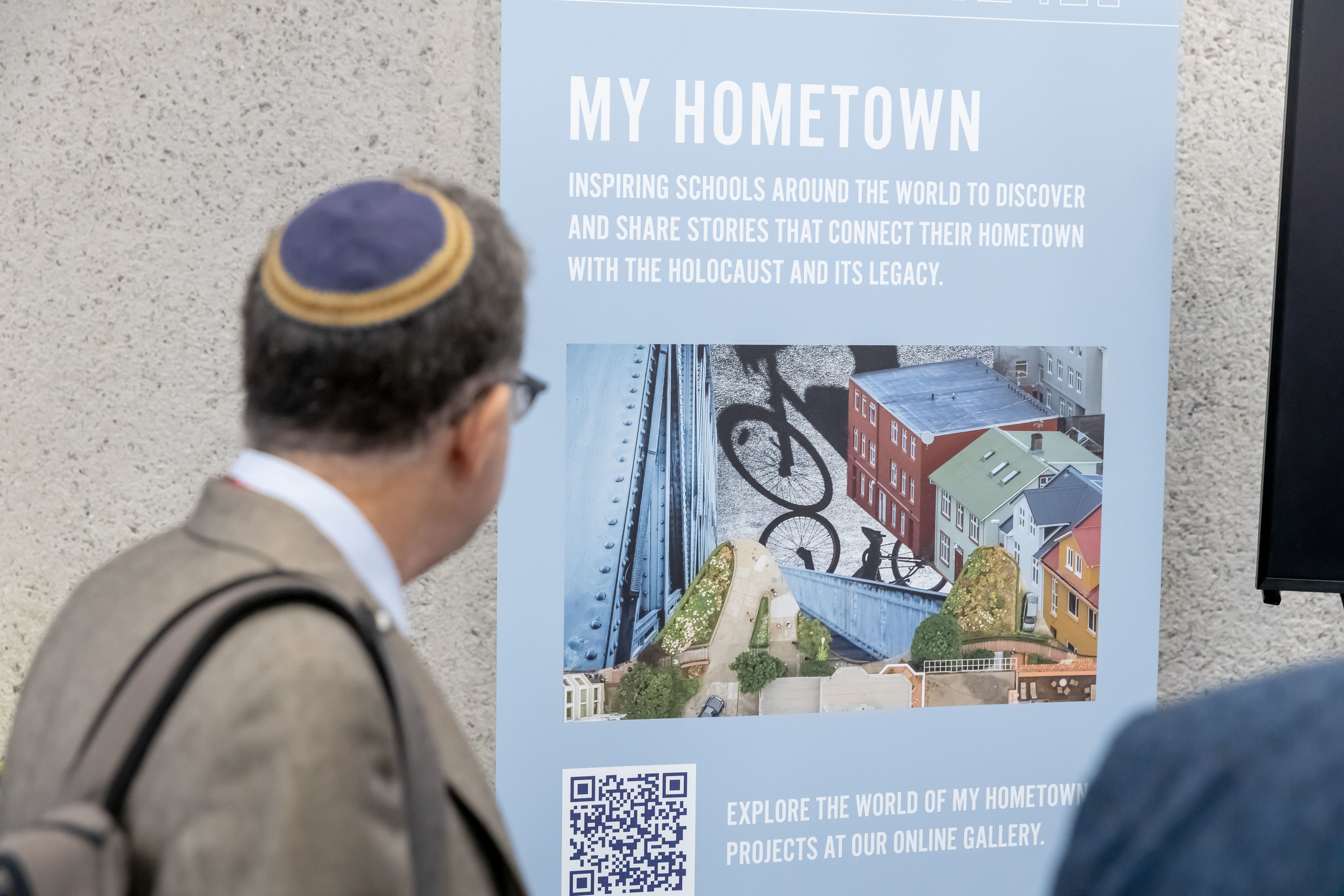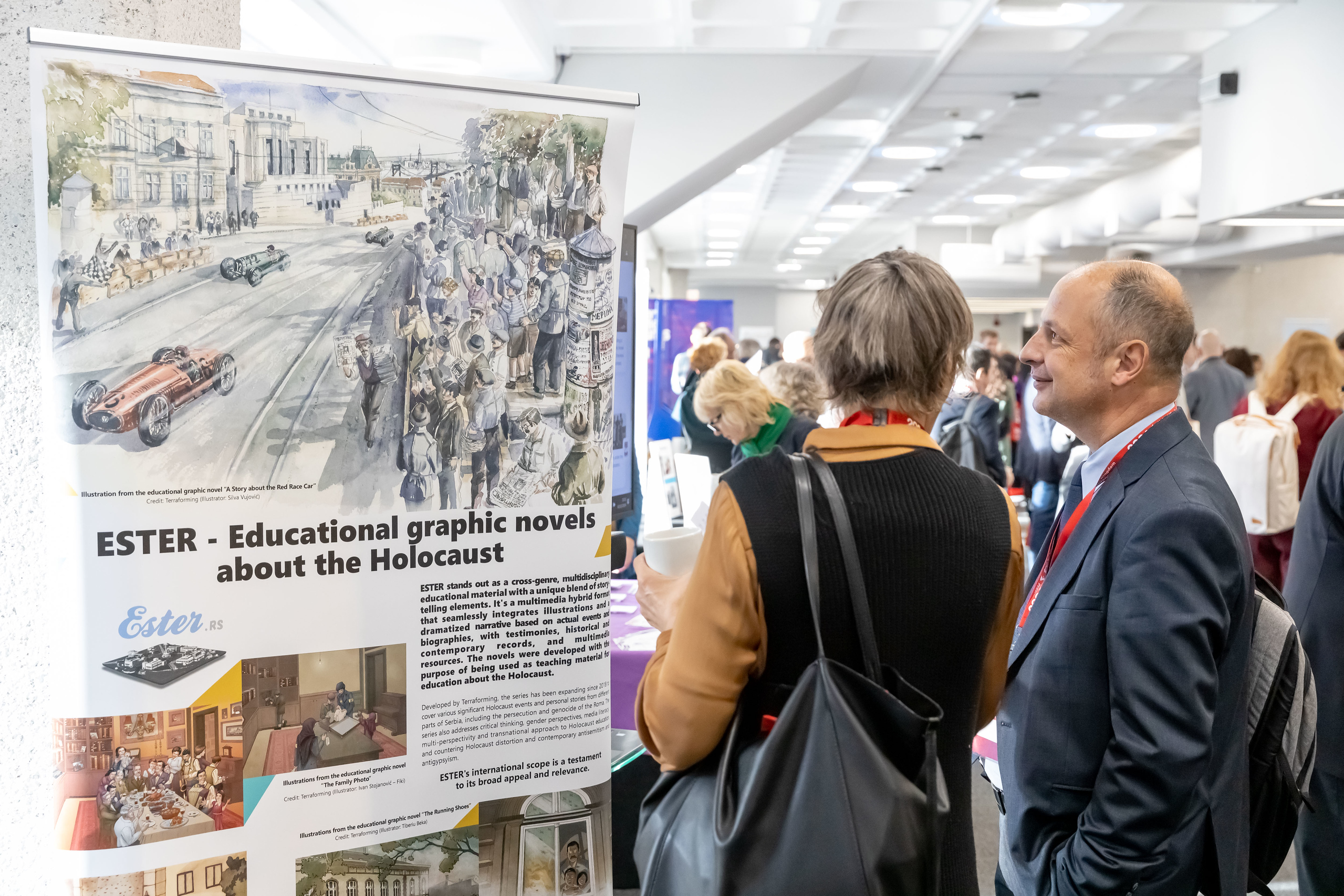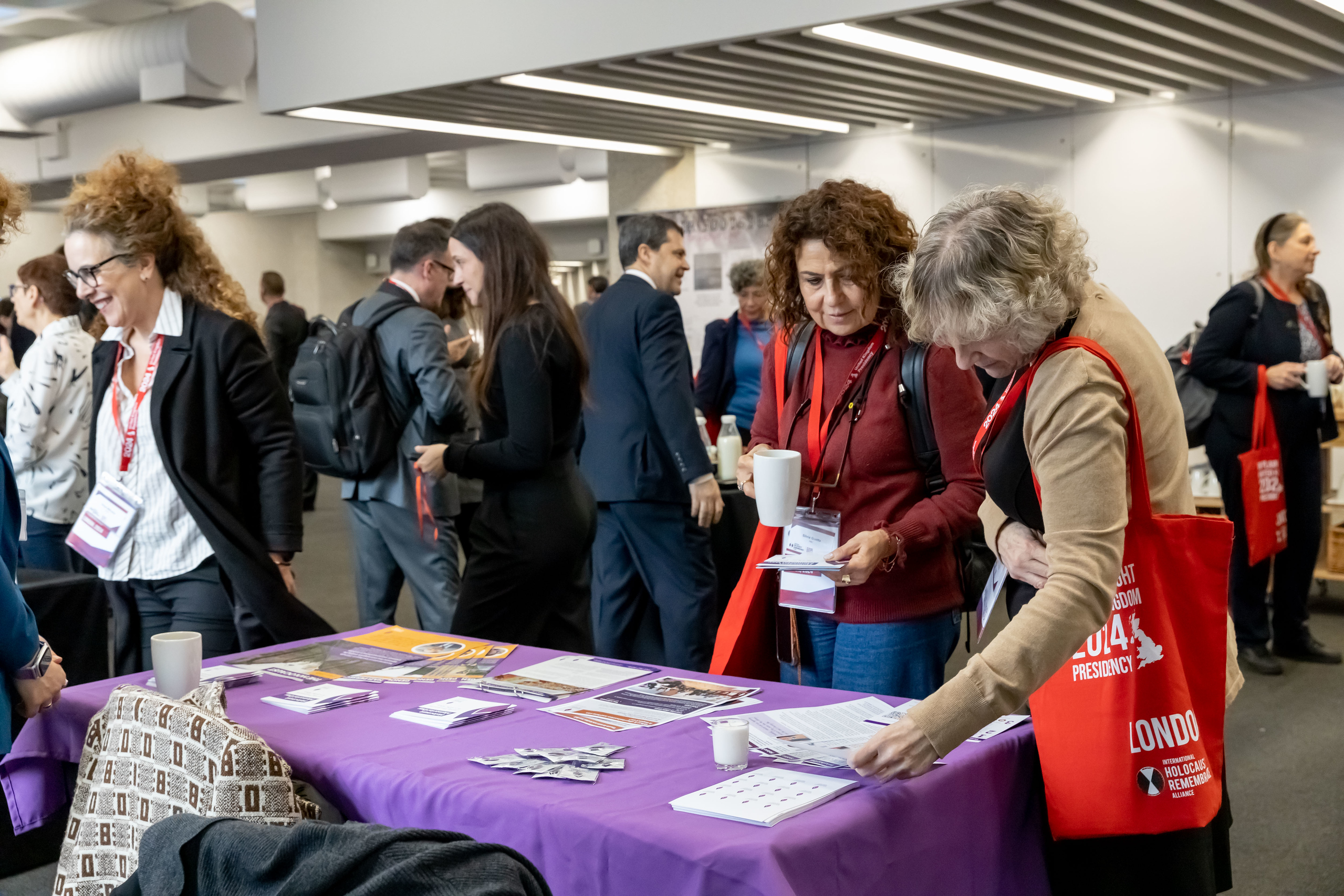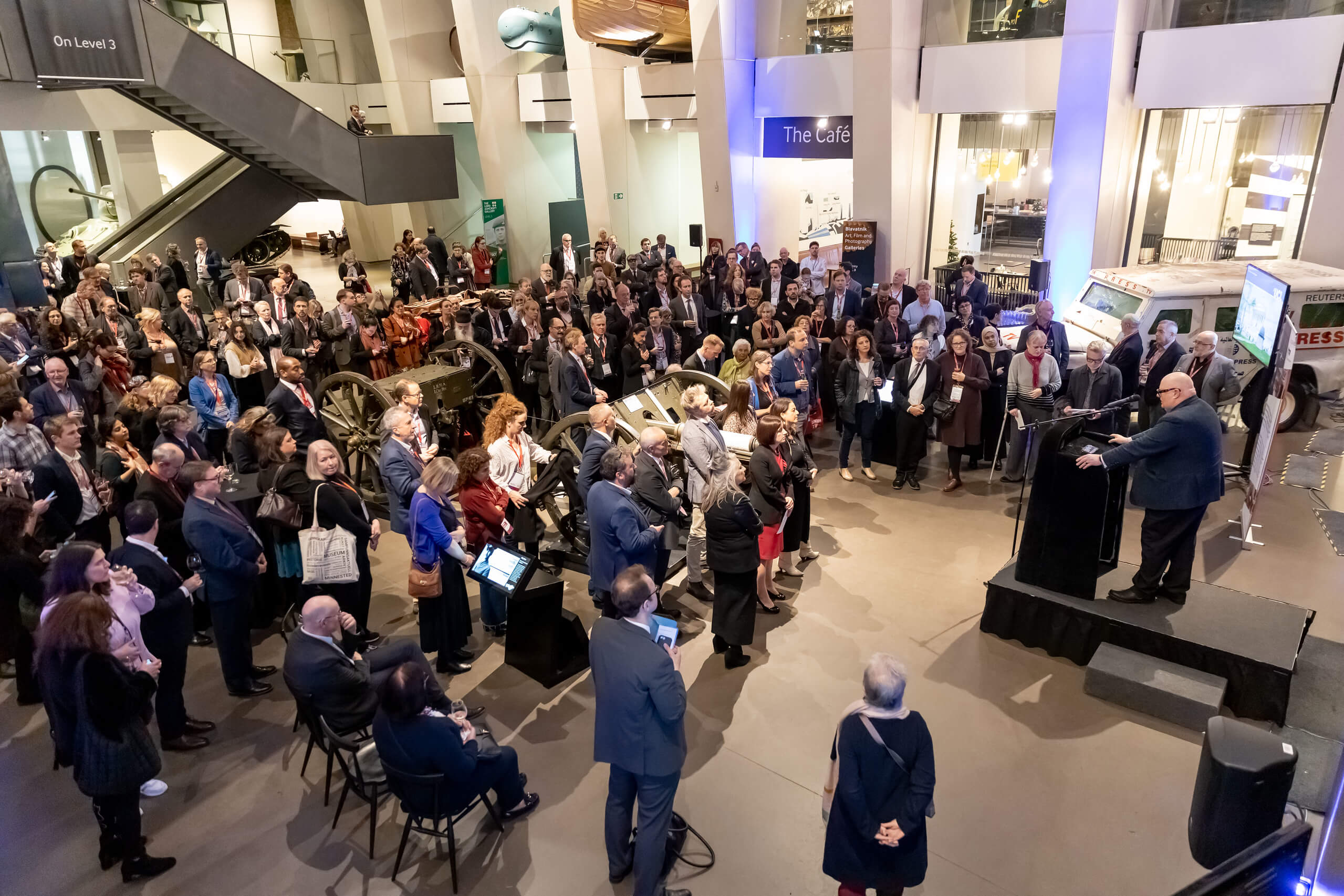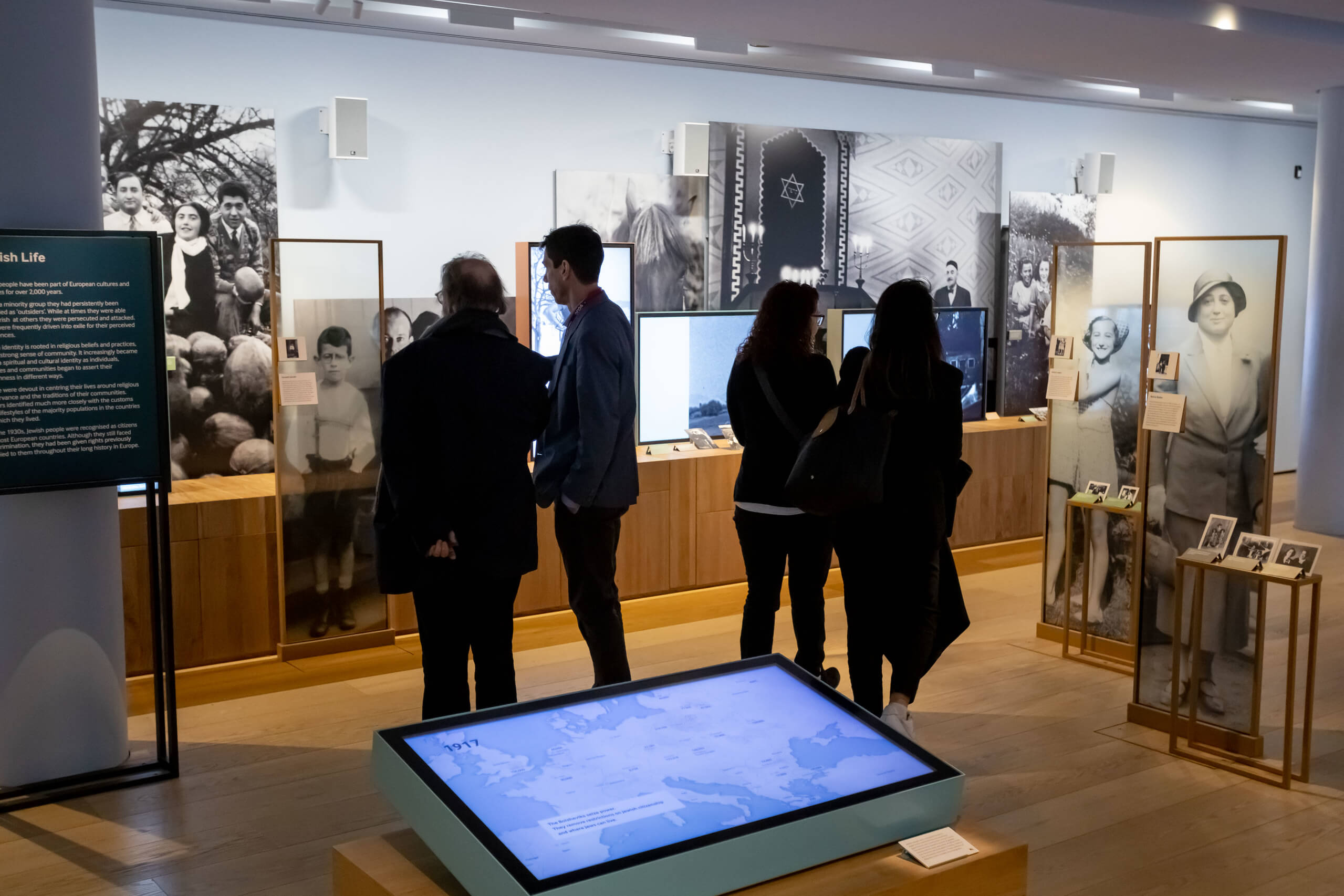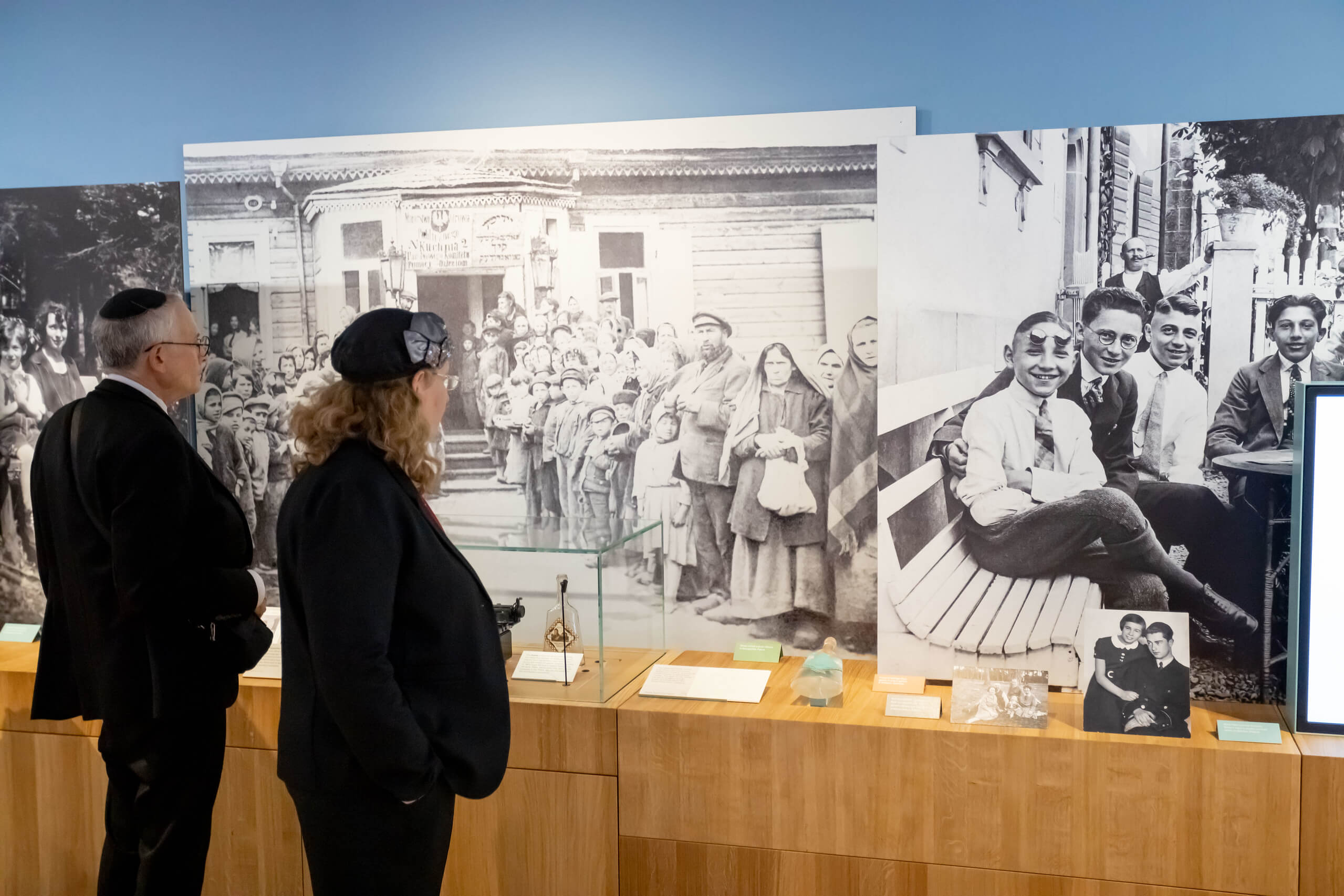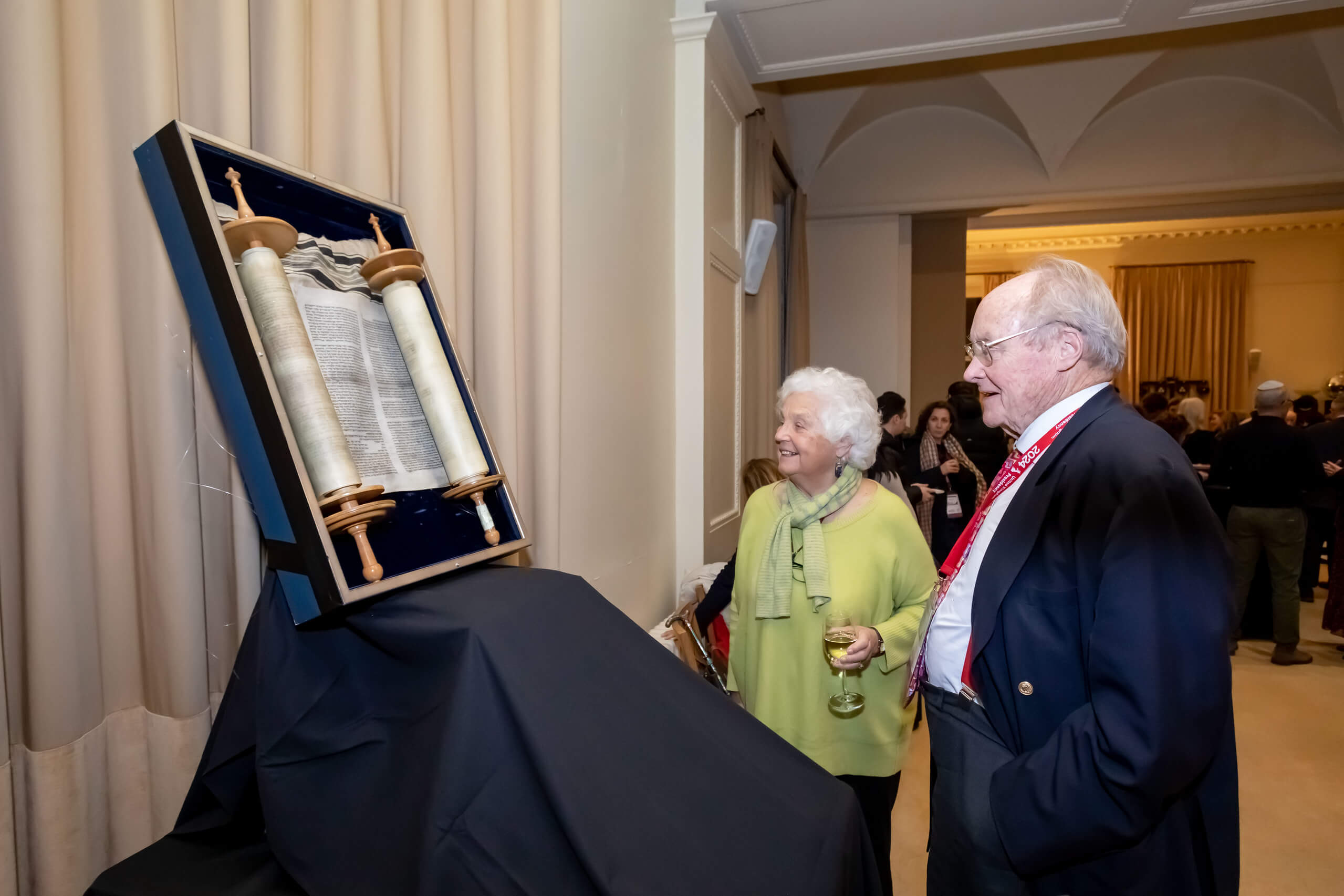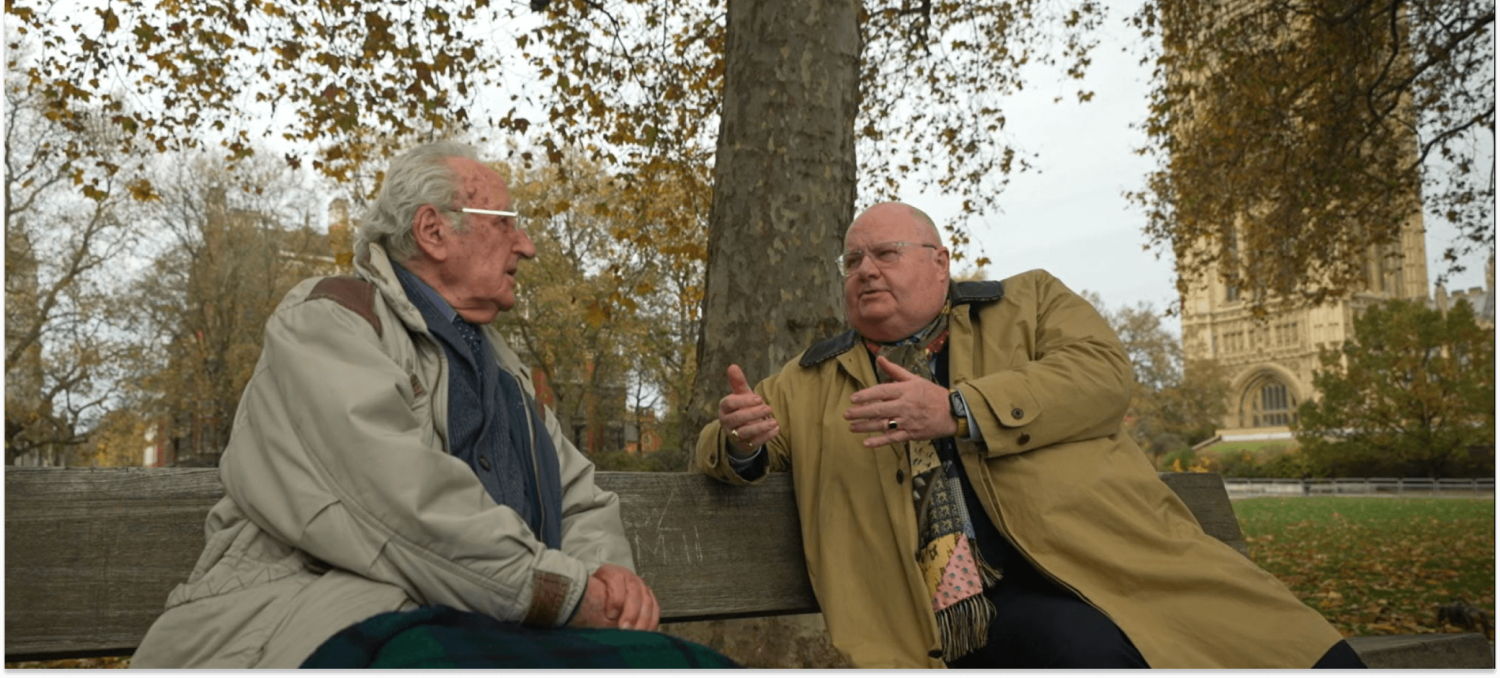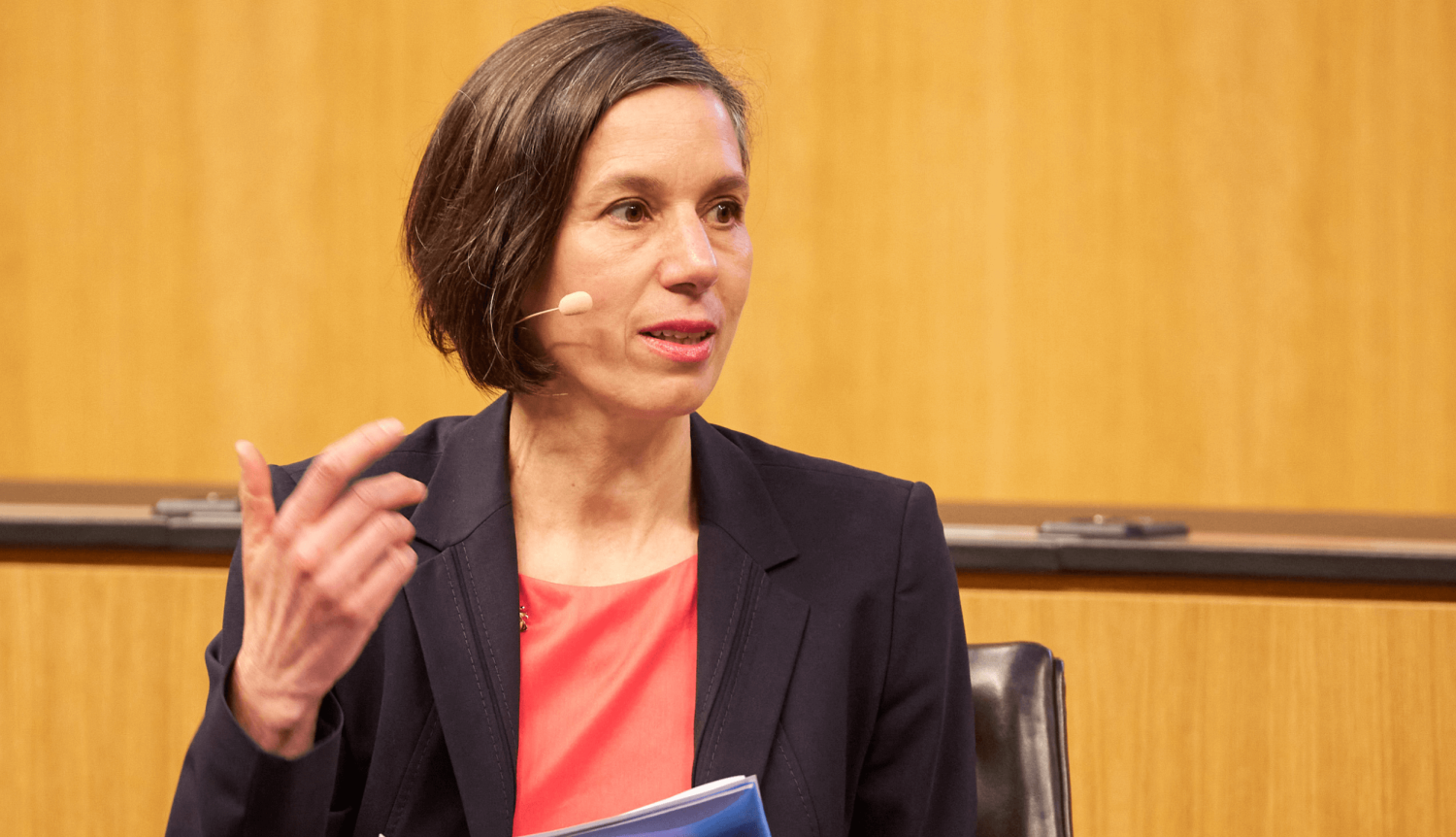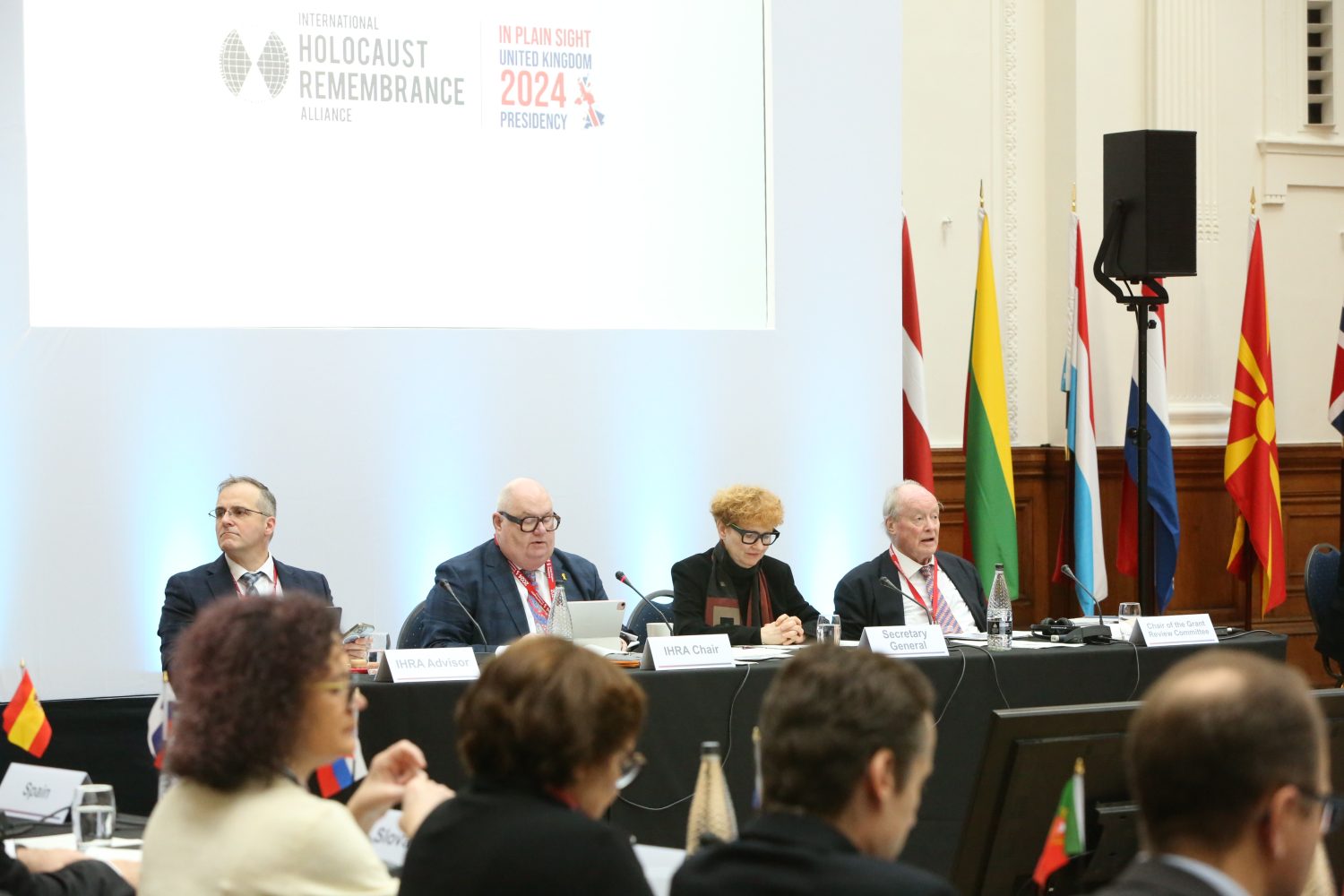


Learning from the Past, Acting in the Present: The London IHRA Plenary
On this page
- Exploring the Role of AI in Holocaust Education and Remembrance
- Session on Addressing Antisemitism
- Honoring Legacies and the IHRA Secretary General
- Roma Recommendations Launch and Conference
- Showcasing UK Presidency Projects
- Evening Events: Reflection and Connection
- Looking Ahead
- Learn more about the IHRA Recommendations for Teaching and Learning about the Persecution and Genocide of the Roma during the Nazi Era
LONDON, 6 December 2024 – The International Holocaust Remembrance Alliance (IHRA) concluded its Plenary meetings under the UK Presidency, held from 2 to 5 December 2024. With its theme “In Plain Sight,” the London Plenary reflected on the importance of Holocaust remembrance, education, and research in addressing contemporary challenges such as antisemitism, antigypsyism/anti-Roma discrimination, and Holocaust distortion.
“Our collective efforts are more important than ever in combating hate and preserving memory for future generations,” stated Lord Eric Pickles, IHRA Chair, as he highlighted the significance of the plenary’s discussions.
Exploring the Role of AI in Holocaust Education and Remembrance
The week began with the AI Conference on the Role of Artificial Intelligence in Holocaust Education, Research, and Remembrance, held on 1 December at Lancaster House. Delegates heard from experts about how AI can preserve memory, enhance access to archival materials, and combat Holocaust distortion. Discussions also explored the ethical concerns and risks of misinformation associated with AI. A highlight of the event was the “Testimony 360” project, a virtual reality initiative by the Holocaust Educational Trust that allows students to engage with survivor testimonies and explore Holocaust sites.
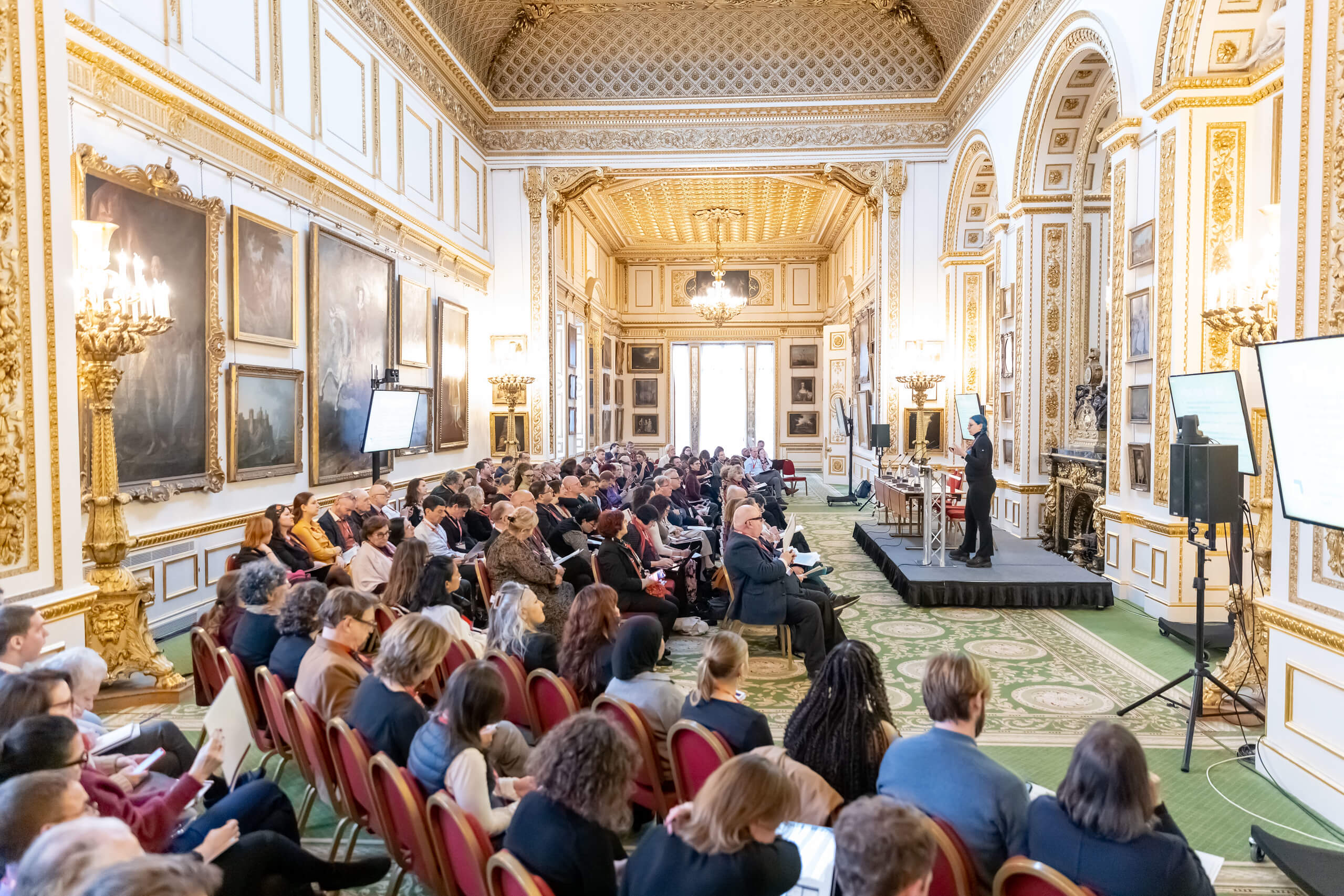
Dr Victoria Grace Richardson-Walden speaks at the conference at Lancaster House. Photo: Grainge Photography Ltd ©
Session on Addressing Antisemitism
The opening session, which commenced the week’s meetings, brought together all delegates to share best practices for combating antisemitism. Introduced during the Glasgow Plenary, these sessions foster collaboration across disciplines, ensuring a collective approach to combating prejudice and preserving memory. This year’s session featured a panel of delegates Mehnaz Afridi (United States), Steven Cooke (Australia) and Moritz Wein (Austria), each contributing distinct viewpoints and expertise.
Dr. Robert Williams, Advisor to the IHRA, set the tone, stating, “For those of us focused on the Shoah, the reason we work on these issues is simple: It matters. It shapes us today. It is relevant, including to the fight against antisemitism.”
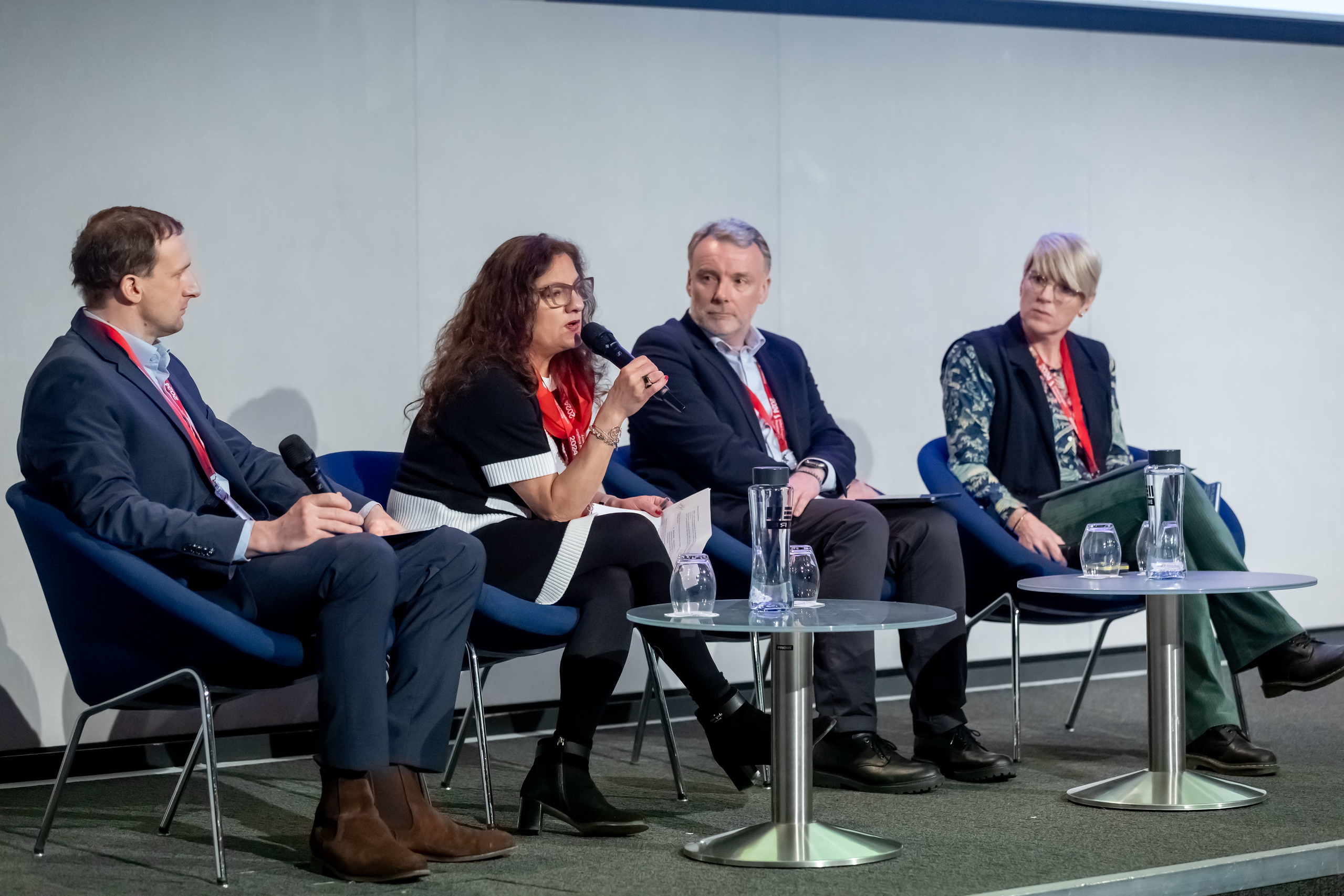
Dr. Mehnaz Afridi speaks at the session on addressing antisemitism. Photo: Grainge Photography Ltd ©
Honoring Legacies and the IHRA Secretary General
Throughout the week, the IHRA paid tribute to its former Honorary Chairman, Professor Yehuda Bauer, whose vision and moral guidance have been instrumental to the organization since its founding. Delegates reflected on his enduring legacy, which continues to inspire the IHRA’s mission to uphold Holocaust memory and education.
The Plenary also marked the last meeting for Dr. Kathrin Meyer, who has led the organization as Secretary General for 17 years. In Thursday’s Plenary session, Kathrin recounted the organization’s evolution from modest beginnings into a global network of political and expert cooperation, much of which is to her credit.
As Sir Andrew Burns noted, “Kathrin, you have been the beating heart of the IHRA. Through your inspirational leadership, dedicated hard work, and incomparable diplomatic skills, you have transformed our organization.”
This delicate balance, achieved through Kathrin’s empathy and subject-matter knowledge, has been instrumental in leading the organization. She emphasized, “I may be stepping away from my role as Secretary General, but this mission, our mission, will always be my life’s work.”
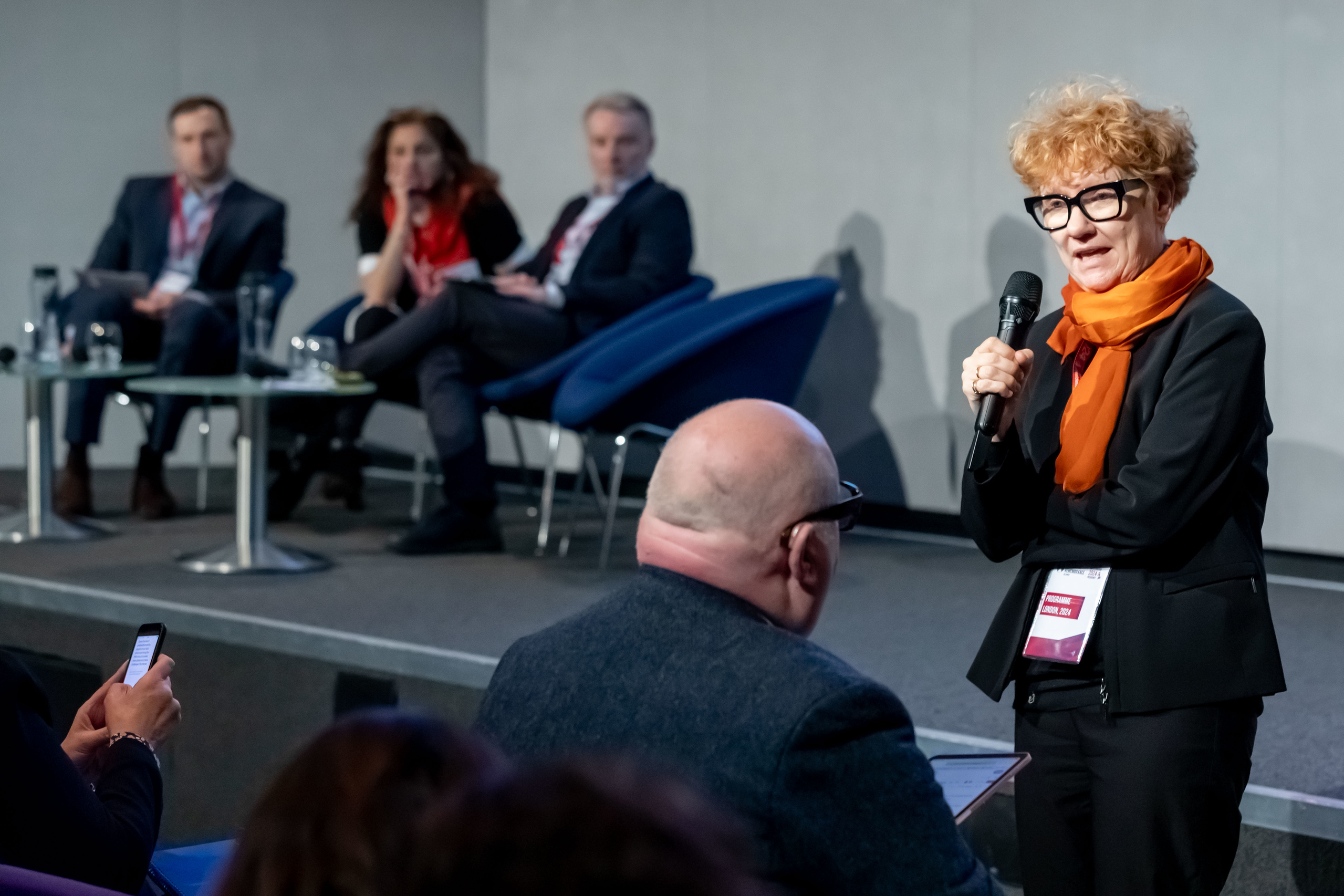
Dr. Kathrin Meyer speaks at the plenary meetings in London. Photo: Grainge Photography Ltd ©
Roma Recommendations Launch and Conference
The launch of the IHRA Recommendations for Teaching and Learning about the Persecution and Genocide of the Roma during the Nazi Era was a key highlight of the week. Held at Lancaster House on 5 December, this event celebrated a significant step forward in addressing historical neglect and promoting inclusive education. Developed with Roma civil society and endorsed by IHRA’s 35 Member Countries, the Recommendations empower policymakers and educators to integrate the history of the Roma genocide into global curricula.
Miško Stanišić, who led the project, said at the launch: “I am very proud that our Recommendations are filled with genuine, contemporary Roma voices and perspectives. This will, I am confident, help many decisionmakers, policymakers, and teachers to better understand the impact of the past on the present; the continuous link between the persecution and genocide during the Nazi era, and antigypsyism today.”
The launch paved the way for the 3rd International IHRA Conference on the Persecution and Genocide of Roma during the Nazi Era: Agency, Education, and Anti-Discrimination, which took place on 6 December. This conference brought together educators, Roma representatives, and IHRA experts to explore Roma agency during and after the Nazi era, the development of the Roma movement, and the contemporary challenges in combating antigypsyism. Participants reflected on untold stories, new educational recommendations, and the importance of preserving Roma history for future generations.
Showcasing UK Presidency Projects
The UK Presidency’s theme, “In Plain Sight,” resonated through its flagship projects, which were presented throughout the Plenary:
- The Holocaust Testimony Portal was officially launched, consolidating survivor and refugee testimonies from multiple institutions. This innovative platform provides a comprehensive narrative of survival and resilience.
- The Holocaust in 80 objects – 80 Lives uses personal artefacts to tell the stories of Holocaust survivors and refugees. This digital exhibition will expand to include all 80 stories by January 2025.
- My Hometown connected students from IHRA Member Countries to their local Holocaust histories. Through online presentations and a dedicated gallery, the project emphasized the importance of linking local and global narratives.
- Student Reflections on AI highlighted the perspectives of young learners from Mulberry Academy Schools, who attended the AI Conference and shared their reflections in person and through a short film.
Evening Events: Reflection and Connection
Evening receptions offered opportunities for dialogue and commemoration. At the start of the week, delegates gathered at the iconic Imperial War Museum to hear from several inspiring speakers, including the UK Secretary of Education, about the importance of Holocaust education and the role of remembrance in addressing contemporary challenges. Later, on Tuesday, delegates visited Kent House, where they toured the Czech Memorial Scrolls. This poignant collection preserves Torah scrolls rescued from synagogues destroyed during the Holocaust, offering a powerful reminder of resilience and the importance of preserving memory. On Wednesday evening delegates were addressed by the Under-Secretary of State at the Ministry of Housing, Communities and Local Government.
Looking Ahead
During the plenary session, the Israeli Heads of Delegation outlined their presidency plans for the coming year, while Argentina was confirmed to take the helm of the organization in 2026. With renewed focus and innovative tools, the IHRA looks forward to advancing its goals around Holocaust education, remembrance, and research in the coming year under the Israeli presidency.
Learn more about the IHRA Recommendations for Teaching and Learning about the Persecution and Genocide of the Roma during the Nazi Era
Discover the IHRA’s Recommendations, a comprehensive guide designed to help policymakers and educators include the genocide of the Roma in teaching programs. This resource offers practical tools, historical context, and pedagogical guidance to foster critical thinking and awareness about this neglected history.

